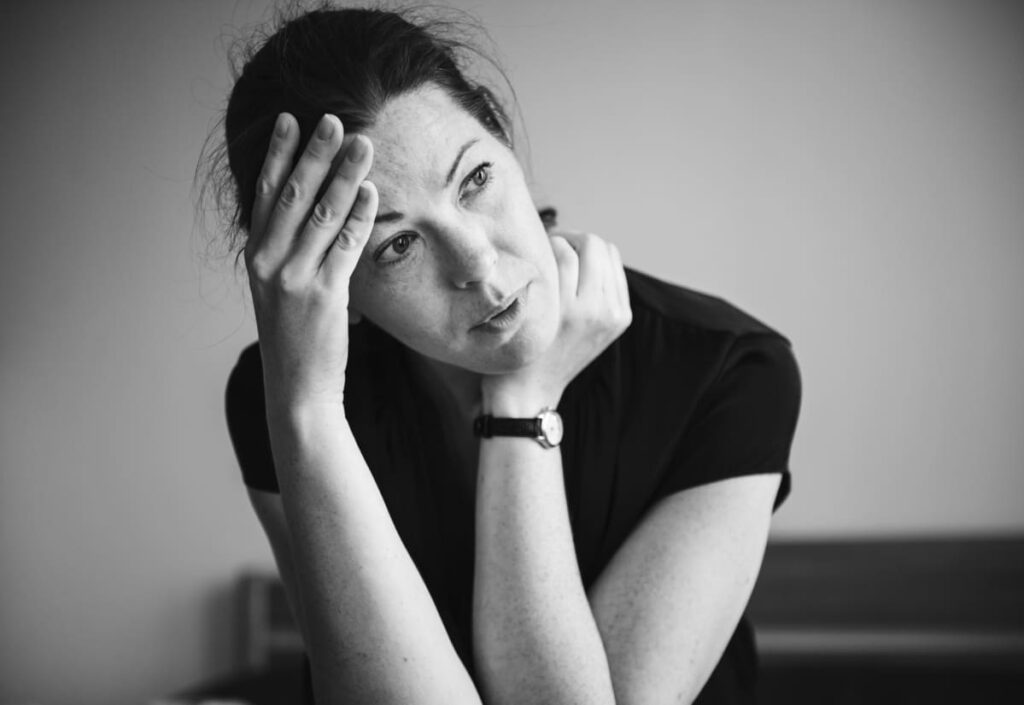Anxiety, an ancient companion of humanity, has found fertile ground in Bangalore’s silicon-rich soil. As a doctor, I’ve witnessed its evolution from a survival instinct to a chronic condition, adapting to our urban ecosystem with alarming efficiency. Once alert to predators, our hunter-gatherer brains now race with abstract threats: looming deadlines, financial instability, and the fear of obsolescence in a rapidly changing world.
Bangalore’s transformation has reshaped our social landscape. Extended families have been condensed into nuclear units scattered across continents. The tight-knit communities of old have dissolved into a sea of high-rises, where neighbours are strangers, and loneliness thrives amidst the crowd. Our goals, once tangible, have become as elusive as the dreams we chase on our screens, fueled by the curated lives we scroll through daily.
We’ve forgotten the art of vulnerability in this relentless pursuit of progress. Our fears and insecurities simmer beneath the surface like a pressure cooker without release. Sleep has become a luxury we can’t afford, and success is measured in stock options rather than contentment. We’ve become a city that barely rests, wearing our exhaustion like a badge of honour.
Understanding the roots of our anxiety is crucial in this new terrain of the mind. It’s time to rewrite the code of our mental well-being, finding balance in a world that never stops spinning. Let’s explore how we can thrive, not just survive, in Bangalore’s urban jungle.

In my years of practice, I’ve seen anxiety creep into the lives of Bangaloreans like a silent, insidious flood. It seeps through the cracks of our fast-paced lives, pooling in the corners of our minds until it threatens to drown us. But why is this happening? And, more importantly, how can we stem this rising tide?
Let me take you on a journey through the minds of our city’s inhabitants, sharing stories that might sound all too familiar. These are tales of struggle, yes, but also of resilience and hope. They paint a picture of a city’s mental health and finding innovative ways to heal.
Deeksha, a 28-year-old Chartered Accountant working for one of the Big Four. She came to me with complaints of heart palpitations, sweating, and a constant feeling of dread. “Doctor,” she said, her voice barely above a whisper, “I feel like I’m always on the edge of a cliff, about to fall.” Deeksha’s story is not unique. The corporate world of Bangalore, with its high-pressure environments and cutthroat competition, has become a breeding ground for anxiety.
Deeksha’s anxiety was like a stubborn virus in her mental operating system, causing her to crash at the most inopportune moments. I started her on a regimen of Yoga Nidra and Ayurvedic medicines. Ayurvedic medicine, combined with the deep relaxation of Yoga Nidra, worked wonders. Slowly but surely, Deeksha began to find her footing on that metaphorical cliff edge.

Then there’s Rakshith, a 35-year-old IT manager whose anxiety manifested as insomnia and irritability. “I feel like my mind is a browser with too many tabs open,” he explained during our first session. Rakshith’s case required a different approach. I focused on pranayama techniques and a customized Ayurvedic diet and medicines. The pranayama helped Rakshith ‘close’ those mental tabs while the Ayurvedic herbs worked to balance his dosha.
But it’s not just the corporate world that’s affected. Anxiety has sunk its claws into our educational institutions as well. Anjali, a final-year engineering student, came to me with severe test anxiety. Her fears had grown like weeds, choking her natural intelligence and confidence. For Anjali, I tried a combination of counselling, ayurvedic medicines and self-reflective journaling. Watching her anxiety shrink as her self-awareness grew was like seeing a garden bloom after a long winter.
These cases might sound diverse, but they’re all threads in urban anxiety. The question is, why are more and more Bangaloreans finding themselves tangled in this web?
Part of the answer lies in our city’s rapid transformation. Bangalore has evolved faster than a startup’s business model, morphing from a pensioner’s paradise to India’s Silicon Valley in just a few decades. This breakneck pace of change has left many feeling like they’re constantly playing catch-up, their minds racing like the traffic on MG Road during rush hour.
Then there’s the pressure cooker of expectations. The fear of falling behind can paralyse a city teeming with overachievers. It’s as if we’re all running a marathon where the finish line keeps moving further away. This constant striving, while driving innovation, also drives many to the brink of mental exhaustion.
Social media, our digital window to the world, has paradoxically left many feeling more isolated than ever. In human history, we’re more connected than ever, yet loneliness has become as common as a Bangalore traffic jam. This dichotomy creates a fertile ground for anxiety to take root.

But it’s not all doom and gloom. Bangaloreans, true to their innovative spirit, are finding creative ways to combat anxiety. From startups focusing on mental health apps to corporate wellness programs, the city is slowly awakening to the importance of mental well-being.
Take the case of Vikram, a young entrepreneur whose anxiety threatened to derail his startup dreams. We worked together to develop a mindfulness routine that fit his hectic schedule. Now, Vikram meditates with the same dedication he applies to his pitch meetings. “My mind used to be like Bangalore traffic,” he told me recently, “chaotic and unpredictable. Now, it’s more like Cubbon Park on a quiet morning.”
Or consider Lakshmi, a veteran teacher whose anxiety stemmed from the pressure of moulding young minds. I introduced her to mindfulness-based stress reduction techniques, ayurvedic medicines, and regular nature walks at the Veterinary College campus. Lakshmi starts each class with a brief guided meditation, fostering a calm learning environment. Her students report feeling more focused and less stressed, mirroring Lakshmi’s journey towards inner peace. “I’ve learned to cultivate a garden of tranquillity within myself,” she told me, “and now I’m helping my students do the same.”
These success stories are encouraging, but they’re just the beginning. As a medical professional, I’ve seen firsthand the toll anxiety can take if left unchecked. It’s like a termite infestation in the foundations of our mental health, quietly eroding our resilience until the whole structure is at risk of collapse.
Recent research has shed light on the neurobiological aspects of anxiety, revealing it’s not just ‘all in your head’. A study from the National Institute of Mental Health and Neurosciences (NIMHANS) here in Bangalore has shown how chronic stress can alter brain structure, particularly in areas responsible for emotional regulation.
But here’s the silver lining: the same research also highlights the brain’s remarkable plasticity. With the right interventions, these changes can be reversed. It’s a reminder that no matter how deeply anxiety has embedded itself in our psyche, there’s always hope for recovery.

Anxiety lurks in the shadows of our daily lives. But we are not helpless. We can fight back. Write your troubles on paper before sleep. Keep a diary. Practice forgiveness. Breathe – Anuloma Viloma, So Hum, Bhramari. Call old friends when the world closes in. I’ve seen Ashwagandha work wonders. Manasa Mitra Vataka too. Understand your body’s fight-or-flight response. Learn how molecules of emotion fuel your fears. Knowledge is power. Motivation is key. Ayurvedic wisdom helps. But most importantly, realize this: anxiety is not you. It’s just a part of you. A part you can manage—a part you can overcome.
In the end, it’s not about eliminating anxiety. It’s about coexisting with it and making peace with it. And in that peace, finding strength—the strength to live fully, love deeply and embrace the beautiful chaos of life in our beloved Bengaluru.

